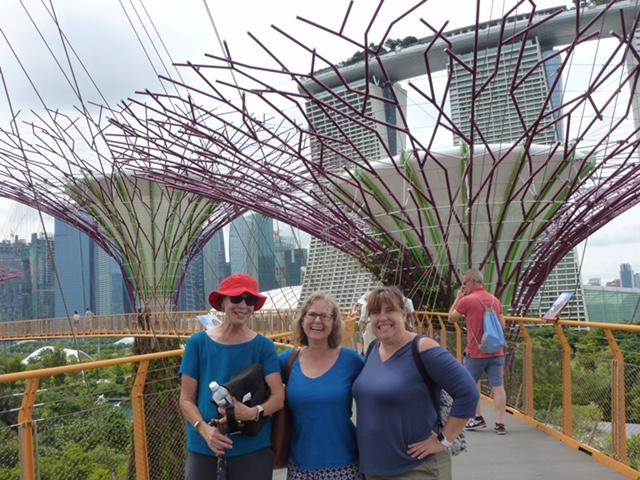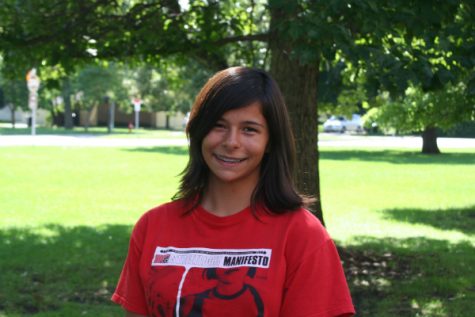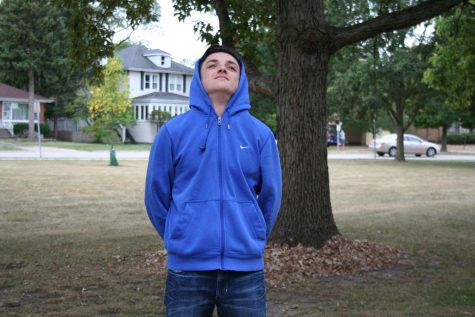To Singapore and back: Czajka reflects on AP trip
December 9, 2016
AP Computer Science teacher, Sandy Czajka, traveled to Singapore this past November to teach AP Computer Science to teachers from around the world.
In Singapore, she met the administrators that ran the workshop from the Singapore American school. During her time there, she met several teachers also involved with the workshop.
“Thursday night, we were taken to the schools so we could meet the administrators that were running the workshop from the Singapore American school,” said Czajka. “[We also] got to see the school and see where we were at and [had] a little tour.”
Czajka spent several hours working in the workshops, learning and teaching teachers from around the globe.
“One teacher [was] from Singapore, one from Dubai, two from China, two from the Philippines, two from Jordan, and two [were] from Cambodia,” said Czajka. “[It] was a surprise what a mix of people it was, and it was super exciting to hear about what their teaching experiences are like.”
While conversing about Computer Science, Czajka heard discussion on some of the same computer programs she is using here at RB that are being used in other countries for teaching.
“It was fun hearing sources they are using that we are using. It [was] kind of neat to think like, ‘Wow, there’s some online resources that we are using in the US that are being used in Jordan, and Dubai, and then the Philippines,’” said Czajka. “It was really a cool idea to think that thought. That connectivity is really huge.”
She also heard a few websites that she had not yet heard of and is considering introducing them to her classes.
“There were a couple of websites that they had used that I had not seen yet so I was going to look into those to see if they were good options for us as well,” said Czajka.
Speaking with the other teachers, Czajka learned about their cultures, teaching experiences, and learning environments. Some schools and countries have disadvantages regarding day to day necessities. As a group, they spent some time brainstorming ideas to help enhance their students’ learning.
“The teachers from Cambodia, when we were looking at resources and such, they had to look at the fact that if they ran this course, they would have to run it over two years because there’s no way they can expect their students to do any homework, not because their students aren’t smart: they are super motivated to get an education,” said Czajka.
Some students cannot devote all of their time to school because they have to take care of their families at home.
“When they leave [school], they go home to no electricity, no running water, having to tend the fields, go to the river and get water for their family,” said Czajka, “Things that we take for granted. I realize that we have some privileges that we take for granted like clean water and electricity, some thing[s] that I don’t think about.”
Czajka saw that the teachers there were really excited to learn and were prepared to teach the course.
“The workshop was super exciting and fun because the teachers were just so excited to learn about the course and get new ideas and get fresh perspectives.”
During her time off, Czajka explored Singapore, visiting the botanical gardens, museums, and seeing the cultural architecture and sculptures.
“We got to see the botanical gardens, because they are very well known for their orchids, which were absolutely beautiful,” said Czajka, “It was a really interesting fusion of science and art and nature in almost everything they have.”
Singapore integrated science into their art and architecture.
“The gardens had technology in them. The sculptures were very artistic but yet had a kind of science feel to it. I knew that this would be modern and it definitely was.”
Czajka is now back and ready to teach AP Computer Science to her own students again, bringing back pieces of schooling ideas from Singapore with her.
“Getting reinvigorated, re-excited for teaching [AP Computer Science] more because when you are with people who are working hard to teach [it] in other places, it makes you even more excited to come back here and do even a better job,” said Czajka.



